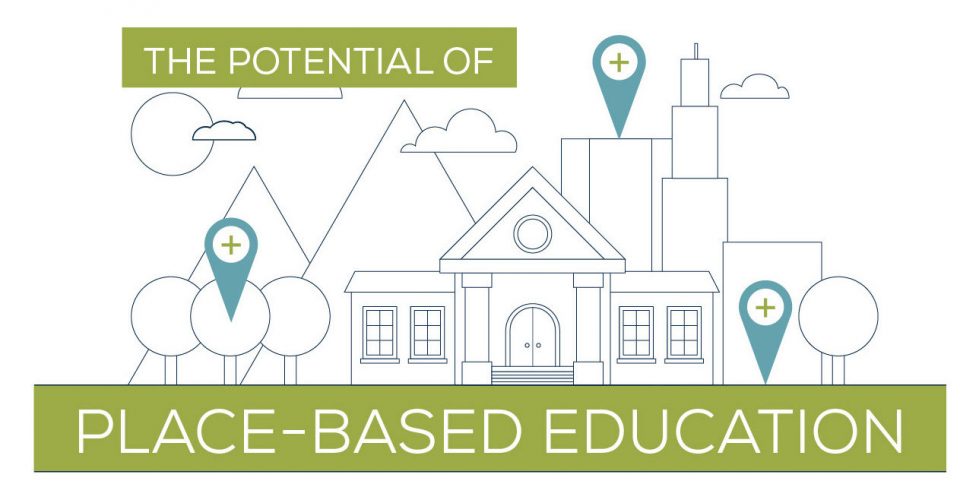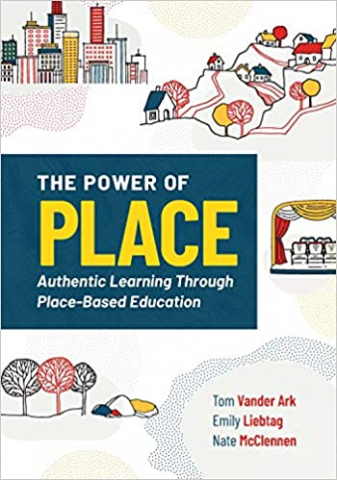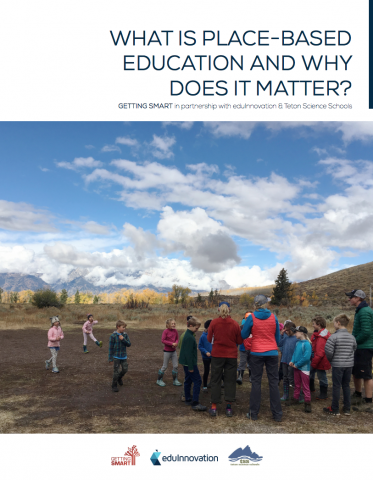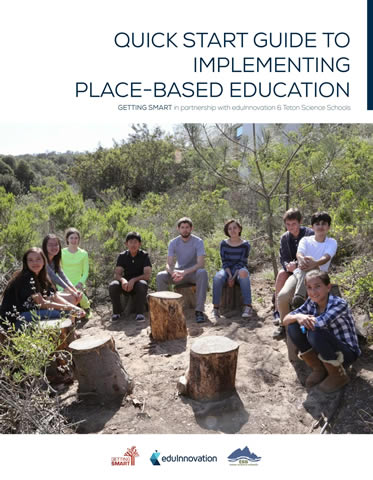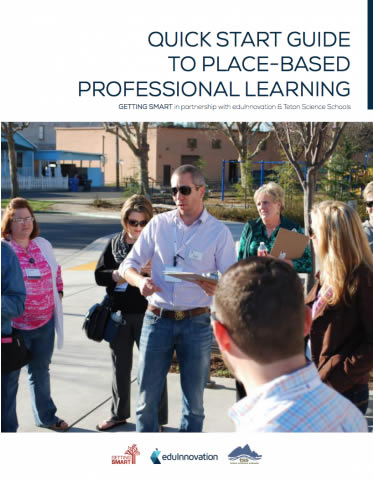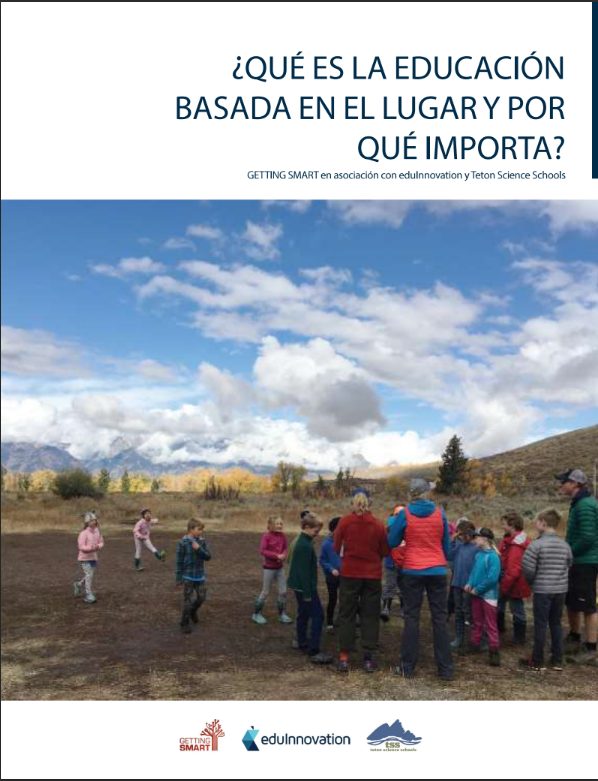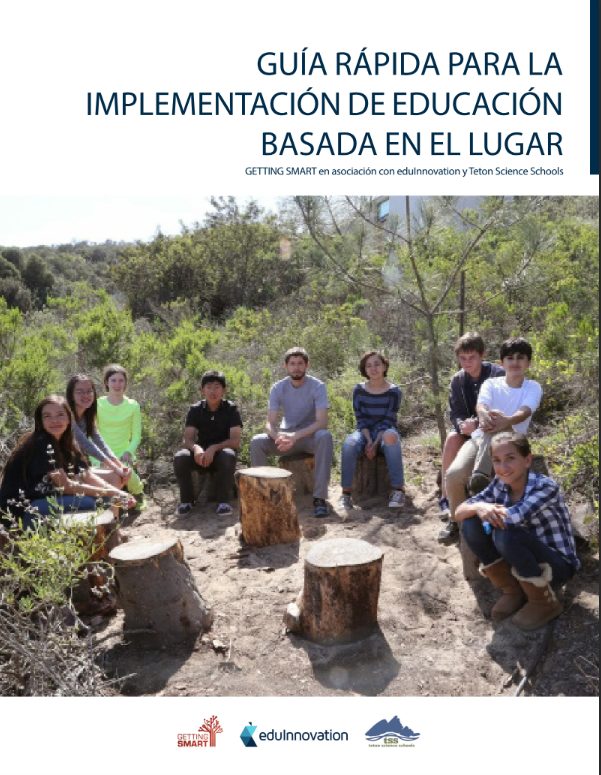What do we mean by "Place"?
We approach place through the lens of the ecological, cultural and economic perspectives of a community. You can inquire about the past and present of a place, and design for what could be in the future of a place.
Benefits of Place-Based Education
Place-based education is an approach that connects learners and communities to increase student engagement, boost learning outcomes, impact communities and promote understanding of the world around us.
Why
Place-based Education?
- Increased engagement
- Explore and experience your world
- Relevant and authentic learning
- Social-emotional learning as a priority
- Increased student agency
- Personalized learning
- Positive community impact
- Promotes lifelong learning
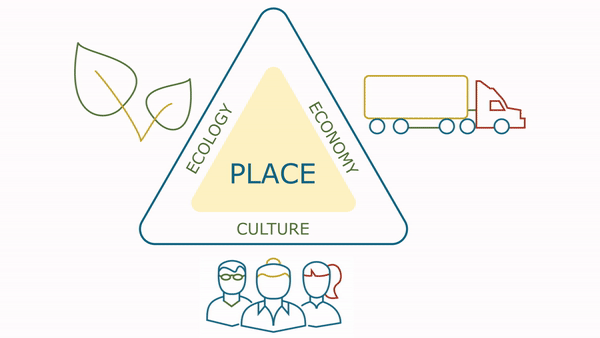
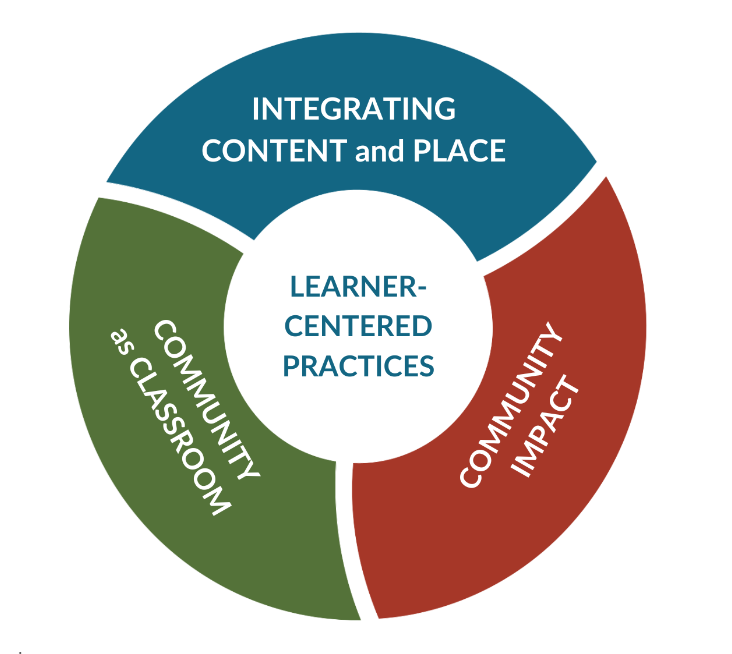
Place-Based Education Principles
We believe in learner-centered practices implemented by teachers who are lifelong learners in content and craft.
The Potential of Place-Based Education - Infographic
This infographic designed in collaboration with Getting Smart and EduInnovation provided a visual overview to guide the implementation of place-based education.
Books and Whitepapers
Placed-Based Education FAQs
Frequently Asked Questions
Place-based education has been practiced for thousands of years by Indigenous communities around the world; it is definitely not a new idea. Connecting with local communities and with each other has experienced a resurgence in a world that is increasingly disconnected from place and people.
Place-based education connects learning with communities. We look at communities through the lenses of culture, economy, and ecology. Teton Science Schools has been using and refining our approach since we were founded in 1967.
Place-based teaching can be a way to revise your current curriculum to make it more relevant and meaningful to your students. You can make adjustments to your math, English reading or writing, or other subject’s curriculum to integrate place-based education principles.
It is really not one more thing; it’s a different way of seeing the world, your students, and your curriculum. Here are examples from schools across the USA of ways different educators and schools have done place-based projects.
You can start by making connections to the local community. Is there a community member who could come into your class to talk with your students about the local relevance of a topic? For example, maybe a local veteran could come in to talk about their experiences in a war as your students learn about that war in their history or social studies class, or a local entrepreneur could talk about how their business emerged from a need that they saw in the community.
Or, another approach might be to identify places that you could take students in the community to learn more about local government or local culture. Could your students attend a local government meeting to learn more about the political process? Could you visit a nature area to see ideas of ecology in action?
Start with small steps. There might be a local connection to a topic in your math curriculum or a community expert you could bring to your class as a guest speaker to make a science or social studies topic more relevant. You can use the principles to enhance and adapt the curriculum you already have.
Teton Science Schools is excited to release its first full-length course based on the Place Prism! Finding My Place is a place-based course for grades 4-8 that is designed to be facilitated by your teachers using the Canvas learning management system. Teachers can either add students directly to Canvas or display the course and facilitate with the whole-class. Finding My Place is free for Place Network schools and $500 per teacher for other schools. You can watch a six-minute general overview video of the course contents here. To get your copy of the course, email placenetwork@tetonscience.org.
Check out the Educational Consulting and Place Network sections of the Teton Science Schools’ website to find out more about our approach to place-based education and our offerings.

